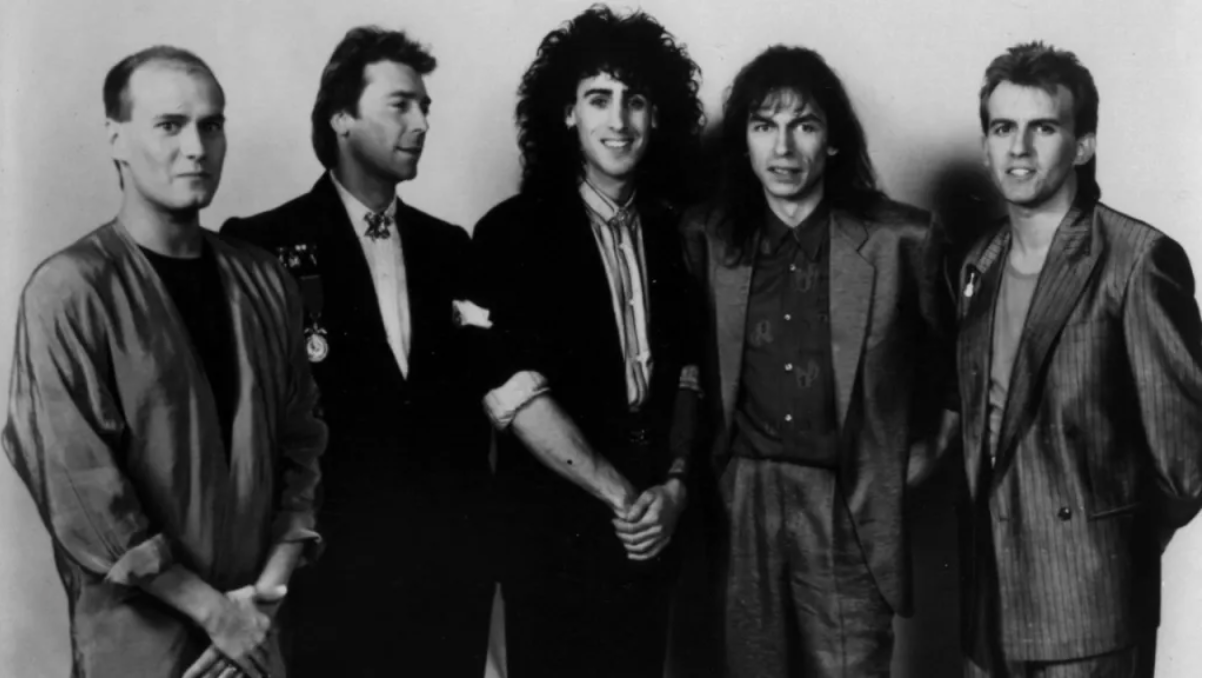On the surface, it was one of the more fascinating supergroups. The combination of guitarists Steve Howe (Yes) and Steve Hackett (Genesis). And yet, ultimately it proved to be short-lived, and probably never given a chance to develop.
“The idea came from Steve Howe’s manager, Brian Lane,” explains Hackett. “Steve and I knew each of course, and Brian thought our styles would be complementary.”
So, GTR was born, with a line-up completed by vocalist Max Bacon, bassist Phil Spalding (who’d worked with Mike Oldfield) and drummer Jonathan Mover (briefly associated with Marillion). That was in 1985, and the first song the guitarists worked on was to prove their biggest hit.
“We played each other some stuff we’d worked on separately. Steve had an idea for the instrumental opening for a song. I had a tune that we could add, so we started to construct When The Heart Rules The Mind.”
This was to be the first single released by GTR in 1986, making it to Number 14 Stateside, which was to prove their most successful market.
“We were lucky to sign to Arista Records, who’s owner was Clive Davis, a real mover and shaker in the music business. That helped us to get noticed in the US, and that’s where we did most of our work.”
However, the band had to fight hard to get this song released as the first single. Davis, for instance, had other ideas.
“We had another track called The Hunter, and that’s the one he wanted out [eventually the second GTR single, but barely touched the US Top 100]. But we insisted When The Heart… should go first.”
However, the tune didn’t make even close to the same impact in the UK, something Hackett puts down to a lack of media support.
“We got a lot of airplay in the US for When The Heart…. MTV were playing the video every hour. The same never happened in the UK.”
Although their self-titled debut album did well in America, making it to Number 11, the band soon fell apart.
“I thought we could have followed a similar path to Queen. But in the end, When The Heart Rules The Mind was our strongest song, and the whole thing was short-lived.”

